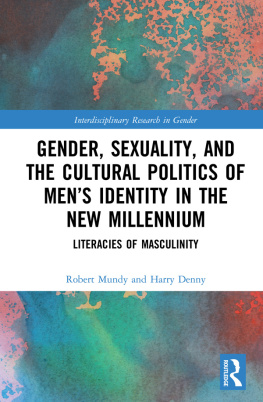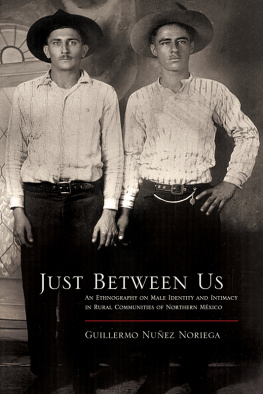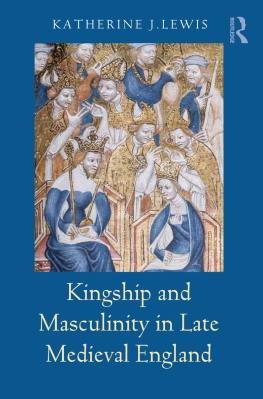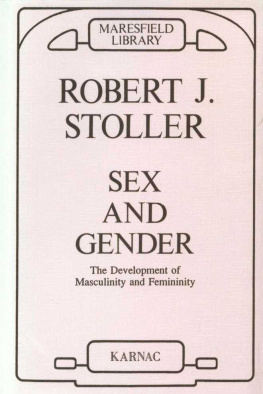Gender, Sexuality, and the Cultural Politics of Mens Identity in the New Millennium
This book considers mass media and contemporary cultural trends to examine masculinity at a point of unprecedented change. While sexual and gender politics have always been fraught, the long unexamined privilege associated with masculinity is now subject to intense scrutiny marked by a host of complex factors.
As past markers of masculine norms have been challenged on cultural, social, and economic fronts, men occupy public space ever aware that how they interact with others is questioned and questionable. What does manhood mean? Who is included in its dominant formations? What performances signify membership in the club? How are men reading this contemporary moment and to what extent does cultural literacy inform, maintain, or challenge normative male identities and subsequent performances? This work examines such questions through language and symbolic meaning, and challenges its readers to critically examine what men know and how they understand and embody gender and sexuality in a post-millennial society.
Gender, Sexuality, and the Cultural Politics of Mens Identity in the New Millennium: Literacies of Masculinity crosses academic disciplines and will be highly relevant in composition/rhetoric, gender studies, masculinity studies, and cross-curricular courses that take up popular/contemporary culture as well as gender, sexuality, race, and class. It has been designed with both undergraduate and graduate students in mind.
Robert Mundy is assistant professor of English and writing program director at Pace University in Pleasantville, NY. His research focuses on composition theory and pedagogy, masculinity studies, writing center theory and practice, and cultural studies. His essays have appeared in the collection Class in the Composition Classroom and the journal The Peer Review. Most recently, he was a contributor to and co-editor of Out in the Center: Public Controversies and Private Struggles (2018).
Harry Denny is associate professor of English and director of the Writing Lab at Purdue University in West Lafayette, IN. His scholarship focuses on composition and writing center studies, cultural studies, and research methods. He has published on identity politics in writing centers; the politics of assessment in writing programs; and media, governmental, legal, and activist responses to HIV and civil rights. He is the author of Facing the Center: Toward an Identity Politics of One-to-one Tutoring and a contributor to and co-editor of Out in the Center: Public Controversies and Private Struggles (2018).
Interdisciplinary Research in Gender
Actresses and Mental Illness
Histrionic Heroines
Fiona Gregory
Cultural Production and the Politics of Womens Work in American Literature and Film
Polina Kroik
Masculinities and Desire
A Deleuzian Encounter
Marek Wojtaszek
Feminism, Republicanism, Egalitarianism, Environmentalism
Bill of Rights and Gendered Sustainable Initiatives
Yulia Maleta
Ungendering Technology
Women Retooling the Masculine Sphere
Carol J. Haddad
Ageing and Contemporary Female Musicians
Abigail Gardner
Sexual Violence and Humiliation
A Foucauldian-Feminist Perspective
Dianna Taylor
Gender, Sexuality, and the Cultural Politics of Mens Identity in the New Millennium
Literacies of Masculinity
Robert Mundy and Harry Denny
Drag, Interperformance, and the Trouble with Queerness
Katie Horowitz
www.routledge.com/Interdisciplinary-Research-in-Gender/book-series/IRG
Gender, Sexuality, and the Cultural Politics of Mens Identity in the New Millennium
Literacies of Masculinity
Robert Mundy and Harry Denny
First published 2020
by Routledge
2 Park Square, Milton Park, Abingdon, Oxon OX14 4RN
and by Routledge
52 Vanderbilt Avenue, New York, NY 10017
Routledge is an imprint of the Taylor & Francis Group, an informa business
2020 Robert Mundy and Harry Denny
The right of Robert Mundy and Harry Denny to be identified as authors of this work has been asserted by them in accordance with sections 77 and 78 of the Copyright, Designs and Patents Act 1988.
All rights reserved. No part of this book may be reprinted or reproduced or utilised in any form or by any electronic, mechanical, or other means, now known or hereafter invented, including photocopying and recording, or in any information storage or retrieval system, without permission in writing from the publishers.
Trademark notice: Product or corporate names may be trademarks or registered trademarks, and are used only for identification and explanation without intent to infringe.
British Library Cataloguing-in-Publication Data
A catalogue record for this book is available from the British Library
Library of Congress Cataloging-in-Publication Data
A catalog record has been requested for this book
ISBN: 978-0-367-14931-4 (hbk)
ISBN: 978-0-429-26010-0 (ebk)
Typeset in Sabon
by Newgen Publishing UK
To our best companions, editors, and critics: Our partners Rachel and Courtney.
We thank our colleagues at our respective institutions for their support, patience, and willingness to serve as sounding boards and impromptu writing workshop participants. Rob would like to thank Dr. Laurie McMillan, along with his colleagues in the Department of English and Modern Language Studies and across the Pleasantville campus, for supporting him and his writing throughout this entire process. Harry wishes to express his appreciation to his Writing Lab associate directors, staff, tutors, and graduate students for listening to his ideas in progress and for giving him time and space to produce this manuscript.
This project would not have been possible without the support of our institutions and their leaders for supporting the planning and production of this manuscript. At Pace University, Rob wishes to express appreciation to Provost Vanya Quiones and Dean Nira Herrmann for providing the Scholarly Research Award funding necessary to design, develop, and revise our manuscript. He is also thankful for Associate Dean Bette Kirschsteins continued support and direction. At Purdue University, Harry is thankful for the College of Liberal Arts leadership, in particular, Dean David Reingold, Senior Associate Dean Joel Ebarb, and Associate Dean Sorin Adam Matei, for their support of this project with Provost Office funding from the ASPIRE program to enhance faculty research. Harry also appreciates the encouragement and mentorship of English Department Head Dorrie Armstrong, whose leadership fosters a healthy balance of teaching, service, research, and administration.
We appreciate the support, encouragement, and guidance from the editorial team at Routledge. They gave us the freedom to explore a politically charged topic with great license and wise direction and insight. Our outside reviewers helped us tighten and focus our argument so that it better bridged the intellectual debates we were taking up between cultural studies, rhetoric and composition studies, and mens studies.








